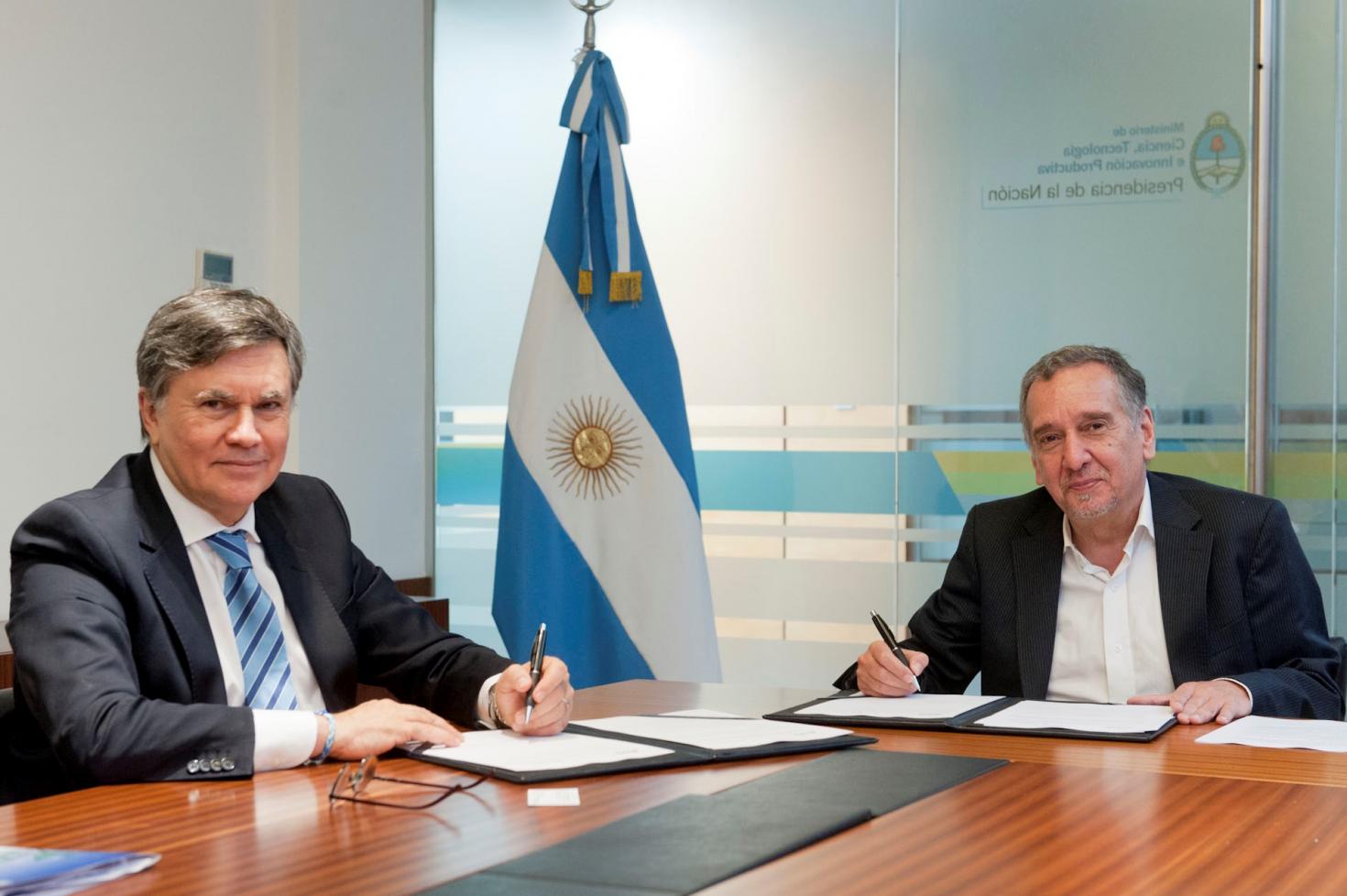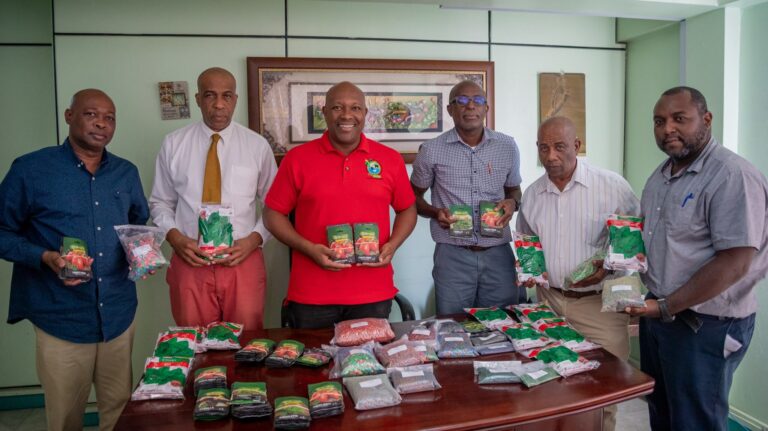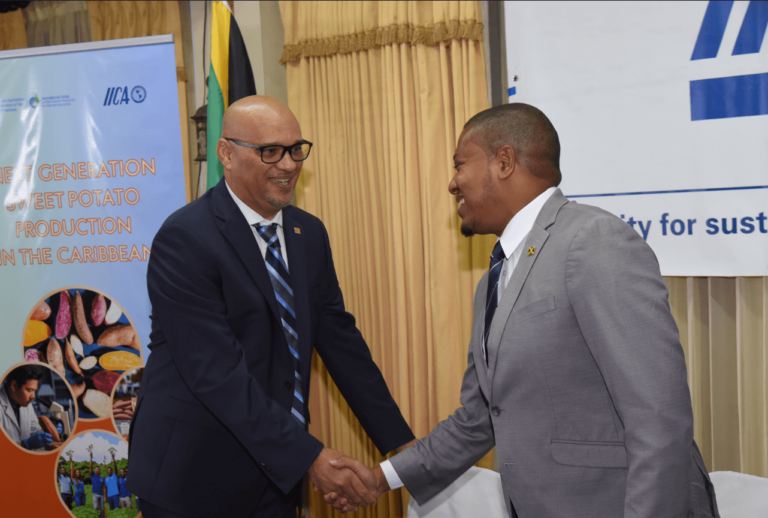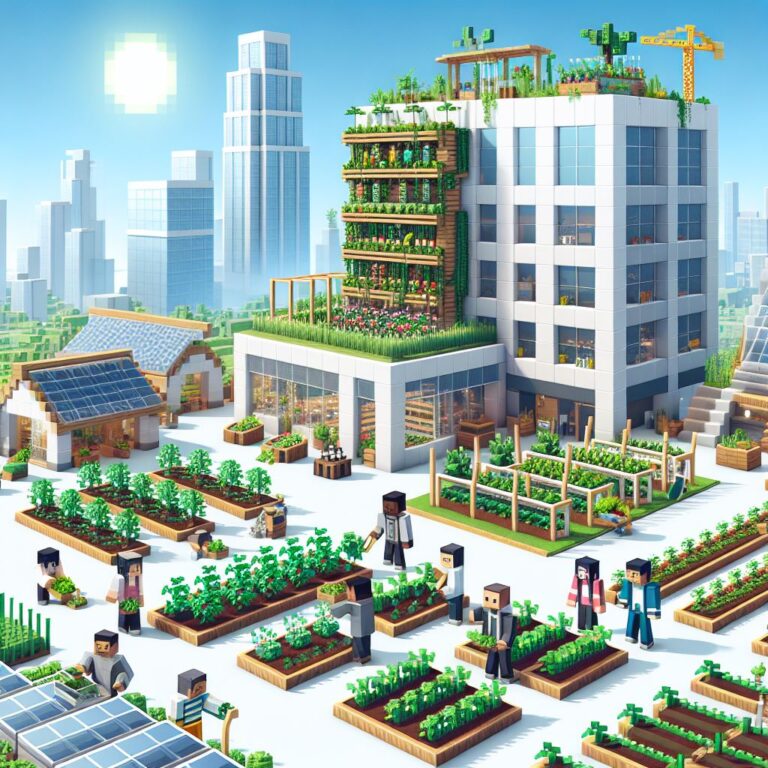The initiative will be guided by an agreement, signed in Buenos Aires by Lino Barañao, Argentina’s Secretary of Science, Technology and Production Innovation, and Manuel Otero, Director General of the Inter-American Institute for Cooperation on Agriculture (IICA). Argentina will be at the forefront of bioeconomy development in Latin America and the Caribbean.

Buenos Aires, 28 February 2019 (IICA). Today in Buenos Aires, Lino Barañao, Secretary of Science, Technology and Production Innovation of Argentina, and Manuel Otero, Director General of the Inter-American Institute for Cooperation Agriculture (IICA) signed an agreement that will propel the development of the bioeconomy in Latin America and the Caribbean.
The agreement will align existing government actions and programs and will coordinate efforts to convey the vision and concept of the bioeconomy from Argentina throughout the Americas – IICA’s sphere of action. Bioeconomy is defined as the knowledge-based and intensive use of biological resources, processes, technologies, and principles, for the sustainable provision of goods and services.
It will also prompt extensive inter-institutional collaboration in implementing online knowledge management platforms, such as courses, workshops, seminars, and other experience-sharing mechanisms that will help to strengthen capacities to capitalize on the bioeconomy.
Barañao remarked that, “This agreement with IICA marks an important milestone, in the areas of food production and nutrition, in general, as the region requires coordinated action at both the technological and production levels. We believe that gaining access to a regional platform, through IICA, will not only afford us a unique opportunity to share knowledge that has been generated in Argentina, but also to benefit from the contribution of other countries in the region”.
He continued by saying that, “We have analyzed a number of initiatives for the future and have already devised concrete actions that are already underway. This is cause for celebration and I am confident that the interaction will be extremely productive”.
In his comments, Manuel Otero indicated that “IICA is pushing the bioeconomy heavily and we want Argentina to be at the forefront of this issue. It is our dream that the next World Conference on the Bieoconomy—the Global Bioconomy Summit—will be held in Argentina. The event takes place every two years and was last held in Germany. This partnership with the Secretariat speaks to an even greater linkage between IICA and science, paving the way for linkages with other institutions”.
In fact, one of the areas of focus of the new 2018-2022 Medium Term Plan, IICA’s institutional roadmap, is Bioeconomy and Production Development.
Through this agreement, IICA will promote the continuation of an online course, “Introduction to the Argentinian Bioeconomy”, which was implemented jointly by this South American country’s Ministry of Science, Technology and Production Innovation and its Ministry of Agroindustry, in collaboration with the Buenos Aires Grain Exchange in 2017.
The initiative received strong support, including from thousands of students who registered for it in various Latin American countries. The course contains specific thematic modules on agricultural and food-related matters, and addresses topics such as food security, the sustainability of food systems, and other aspects related to food design and its context.
Argentina possesses features that provide multiple opportunities for bioeconomy development, such as the size of its terrain; range of climate conditions; available biodiversity; its significant expanse of native and planted forests; and agricultural, livestock and agroindustrial sectors that are highly competitive. The development of Latin America’s bioeconomy will be critical to its role in helping to satisfy global food and energy demands, under environmentally and socially sustainable conditions.
The agreement was signed at the Headquarters of the Secretariat of Science, Technology and Production Innovation, in the presence of Pablo Nardone, from the General Coordination Unit of the Secretariat, and María Eugenia Tola, who oversees the Bioeconomy project portfolio. Jorge Werthein, Special Advisor to IICA’s Director General, and Edith Obschatko, IICA Policy Specialist in Argentina were also in attendance.
More information:
Institutional Communication Division










